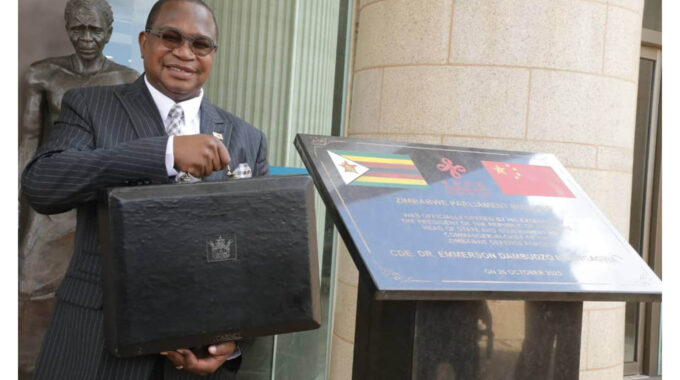Manufacturing sector remains priority: Minister Ncube
THE Government remains committed to supporting the growth and development of the local manufacturing industry despite prevailing macroeconomic challenges, a Cabinet minister has said.
Speaking after a tour of listed piping products manufacturer Proplastics Limited in Harare last week, Finance, Economic Development and Investment Promotion Minister Professor Mthuli Ncube said the Government was implementing a range of incentives to support the growth of the sector.
The incentives include VAT deferment, duty-free importation of certain equipment, tax relief and tax rebates.
“It’s very important for us to continue to support our manufacturing sector; it creates jobs, we get revenue from it as fiscus — it’s just good for the backward and forward linkages for the entire economy.
The manufacturing industry is expected to grow by 3,1 percent this year, up from an initial projection of 2 percent. The expansion is expected to be driven by increased agricultural output, which will stimulate agro-processing industries, especially the drinks and beverages sub-sector.
Professor Ncube also said that the Treasury would soon release funds from the industrialisation fund, as outlined in the 2025 National Budget, to support the retooling of companies.
“Also in the budget (2025 fiscal policy statement) we introduced an industrialisation fund (to be extended) to those investing in specific areas (such as) the pharmaceutical sector, fertiliser industry, motor car industry, and other industries where we think this money will be useful,” he reiterated.
The Treasury allocated about ZiG550,9 million to the Ministry of Industry and Commerce to support the implementation of the Zimbabwe Industrial Reconstruction and Growth Plan (ZIRGP) (2024-2025).
The ZIRGP, a short-term transitional manufacturing policy document largely focusing on import substitution outlines a series of interventions to promote industrial growth, including measures to enhance intermediate manufacturing, optimise value chains, and increase local content.
The plan runs between October 2024 and December 2025. Despite the potential of the local manufacturing sector, Zimbabwe continues to spend significant foreign currency on imports.
To address this issue, ZIRPG prioritises seven sectors for import substitution namely tyres, motor vehicles, fertilisers, pharmaceutical products, articles of iron and steel, cement, and edible crude oil.
Minister Ncube said the Government will also support the capitalisation of development institutions, including the Zimbabwe Women Micro Finance Bank (ZiG130 million), EmpowerBank (ZiG77,4 million), the Small and Medium Enterprises Development Corporation (ZiG130 million), and the National Venture Capital Company of Zimbabwe (ZiG108 million).
“Another element is basically the National Venture Fund which in essence tries to stimulate those who are starting from ground zero. So those resources will go a long way in stimulating the start-ups that will eventually grow to become big companies,” said Minister Ncube.-herald









